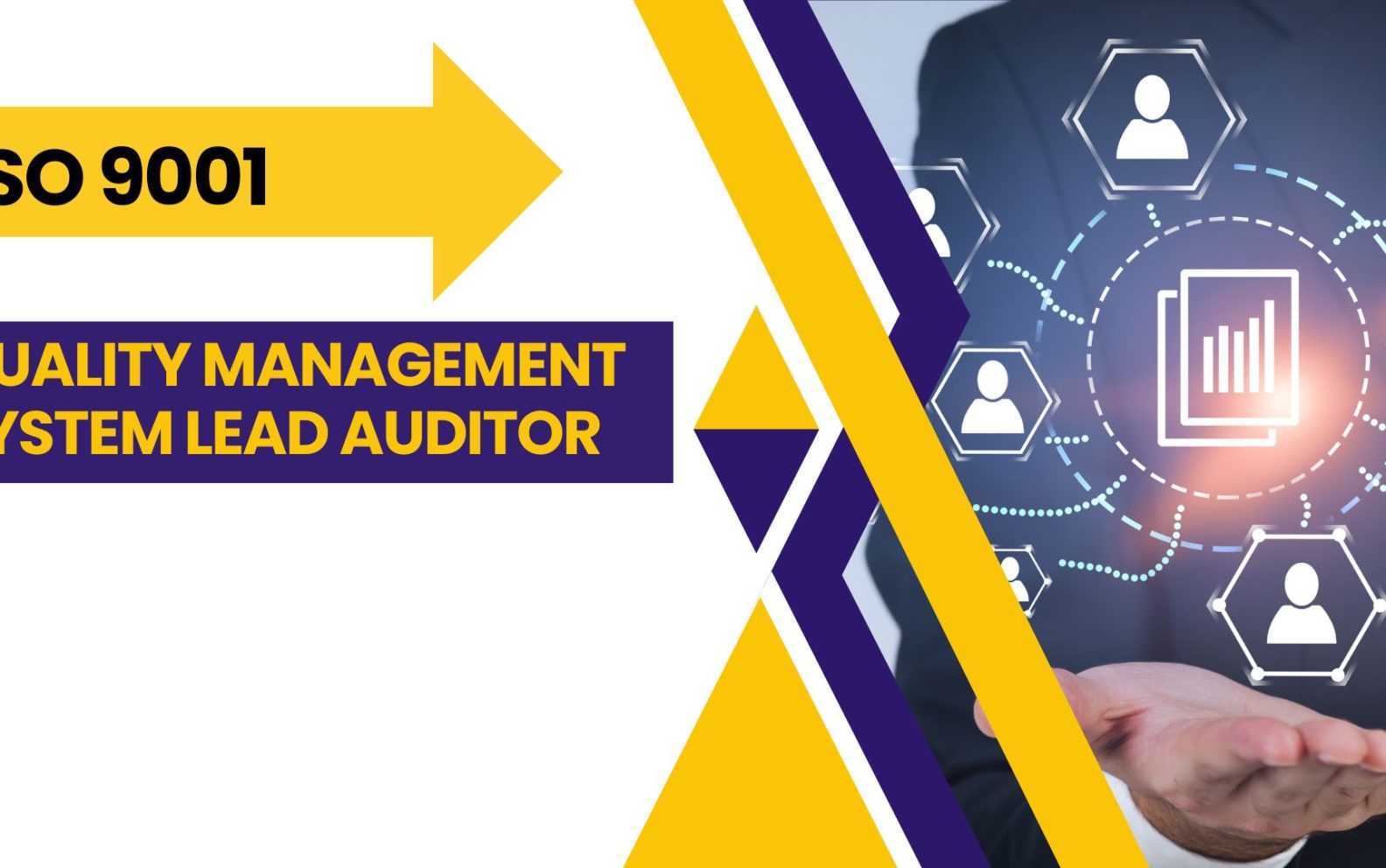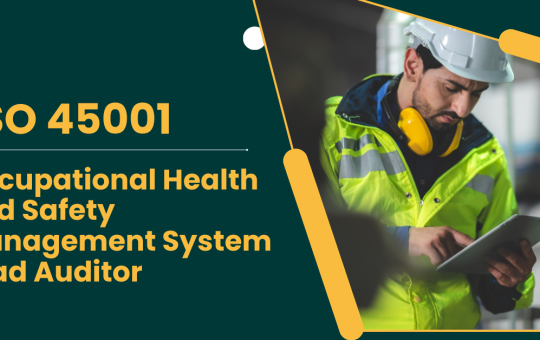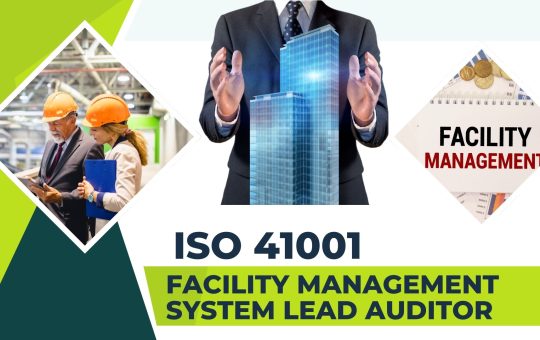
ISO 9001: Quality Management System Lead Auditor
- Globally Recognized Qualification: Gain certification recognized across industries worldwide.
- Enhanced Audit Expertise: Learn to conduct effective and compliant QMS audits.
- Improved Organizational Performance: Contribute to quality improvements and operational efficiency.
- Career Advancement: Unlock opportunities for roles in quality management and auditing.
- Compliance Assurance: Ensure adherence to ISO 9001 standards and legal requirements.
- Understand the principles and requirements of ISO 9001 standards.
- Gain expertise in planning, conducting, reporting, and following up on audits.
- Acquire skills to identify non-conformities and recommend corrective actions.
- Develop the ability to lead audit teams and communicate findings effectively.
- Understand how to foster continuous improvement within an organization.
- Introduction to ISO 9001
- Overview of quality management principles.
- Understanding ISO 9001 structure and requirements.
- Auditing Fundamentals
- Types of audits: first-party, second-party, and third-party.
- Roles and responsibilities of a lead auditor.
- Planning and Preparation
- Developing audit plans and checklists.
- Identifying key areas for assessment.
- Conducting an Audit
- Interviewing techniques and evidence gathering.
- Evaluating processes and systems against ISO 9001 standards.
- Non-Conformance and Corrective Actions
- Identifying and documenting non-conformities.
- Providing actionable recommendations for improvement.
- Audit Reporting and Communication
- Preparing clear and concise audit reports.
- Presenting findings to stakeholders and management.
- Leadership and Continuous Improvement
- Leading audit teams effectively.
- Promoting quality improvements across the organization.
- Lead Auditor: Conduct audits for certification bodies or organizations.
- Quality Manager: Oversee quality management systems and compliance initiatives.
- Consultant: Advise organizations on achieving and maintaining ISO 9001 certification.
- Internal Auditor: Manage internal audit processes within a company.
- Trainer: Provide training on ISO 9001 standards and auditing techniques.
Study Units
- Introduction to ISO 9001
- Overview of quality management principles.
- Understanding ISO 9001 structure and requirements.
- Auditing Fundamentals
- Types of audits: first-party, second-party, and third-party.
- Roles and responsibilities of a lead auditor.
- Planning and Preparation
- Developing audit plans and checklists.
- Identifying key areas for assessment.
- Conducting an Audit
- Interviewing techniques and evidence gathering.
- Evaluating processes and systems against ISO 9001 standards.
- Non-Conformance and Corrective Actions
- Identifying and documenting non-conformities.
- Providing actionable recommendations for improvement.
- Audit Reporting and Communication
- Preparing clear and concise audit reports.
- Presenting findings to stakeholders and management.
- Leadership and Continuous Improvement
- Leading audit teams effectively.
- Promoting quality improvements across the organization.
Upon successful completion of the ISO 9001: QMS Lead Auditor course, participants will be able to demonstrate the following professional competencies:
-
Audit Leadership:
Plan, lead, and manage ISO 9001 quality management system audits from initiation to closure, ensuring adherence to ISO 19011 guidelines. -
Process Evaluation and Analysis:
Assess the effectiveness of organizational processes and identify areas for quality enhancement and operational efficiency. -
Compliance and Performance Assessment:
Evaluate conformity with ISO 9001 requirements, customer satisfaction measures, and regulatory obligations. -
Corrective and Preventive Action:
Identify non-conformities, analyze root causes, and propose effective corrective and preventive actions to support continual improvement. -
Evidence-Based Auditing:
Collect, verify, and interpret objective evidence to make informed judgments about system performance and compliance. -
Communication and Reporting:
Prepare precise, well-structured audit reports and deliver findings confidently to management and stakeholders. -
Team Leadership and Coordination:
Lead audit teams effectively, delegate responsibilities, and ensure productive engagement among all participants. -
Continuous Improvement and Integration:
Drive continual improvement initiatives and integrate quality management principles across other ISO-based systems for organizational excellence.
This course is ideal for professionals involved in managing, implementing, or auditing quality management systems within their organizations. It is particularly designed for:
-
Quality Managers and Officers: Seeking to strengthen their expertise in ISO 9001 implementation and auditing.
-
Internal and External Auditors: Aiming to qualify as ISO 9001 Lead Auditors and conduct certification-level audits.
-
Compliance and Process Improvement Professionals: Focused on ensuring organizational adherence to quality standards.
-
Operations and Production Managers: Responsible for maintaining consistent quality and continuous improvement across departments.
-
Consultants and Advisors: Providing guidance to organizations pursuing ISO 9001 certification or performance excellence.
-
Professionals Seeking Career Growth: Aspiring to leadership positions in quality assurance, auditing, or compliance management.
-
Integrated Management Practitioners: Working to align ISO 9001 with other systems such as ISO 14001, ISO 45001, or ISO 50001.
Our assessment process is designed to ensure every learner achieves the required level of knowledge, skills, and understanding outlined in each course unit.
Purpose of Assessment
Assessment helps measure how well a learner has met the learning outcomes. It ensures consistency, quality, and fairness across all learners.
What Learners Need to Do
Learners must provide clear evidence that shows they have met all the learning outcomes and assessment criteria for each unit. This evidence can take different forms depending on the course and type of learning.
Types of Acceptable Evidence
Assignments, reports, or projects
Worksheets or written tasks
Portfolios of practical work
Answers to oral or written questions
Test or exam papers
Understanding the Structure
Learning outcomes explain what learners should know, understand, or be able to do.
Assessment criteria set the standard learners must meet to achieve each learning outcome.
Assessment Guidelines
All assessment must be authentic, current, and relevant to the unit.
Evidence must match each assessment criterion clearly.
Plagiarism or copied work is not accepted.
All learners must complete assessments within the given timelines.
Where applicable, assessments may be reviewed or verified by internal or external quality assurers.
Full learning outcomes and assessment criteria for each qualification are available from page 8 of the course handbook.
Top Courses
Related Courses
Let's Get in touch
Deleting Course Review
Course Access
This course is password protected. To access it please enter your password below:



